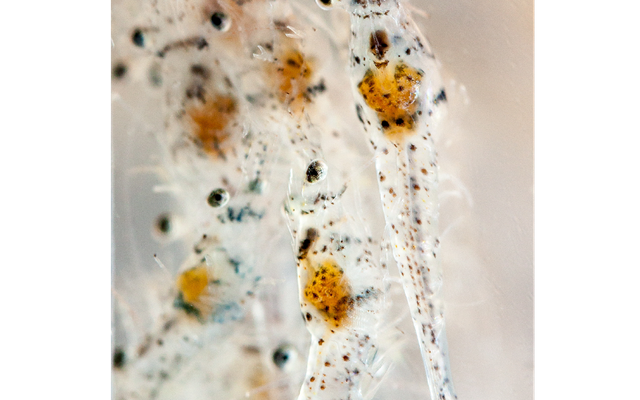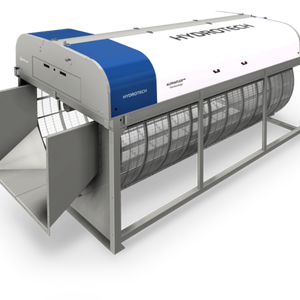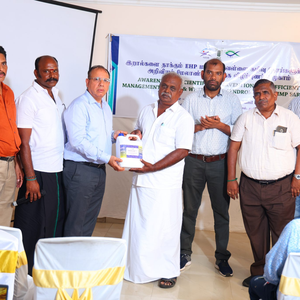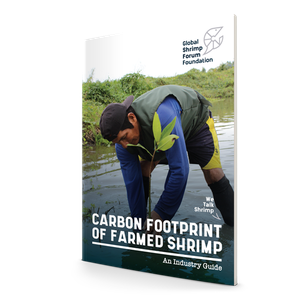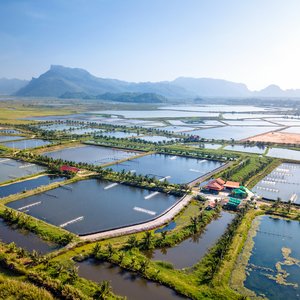With their low molecular weight and high level of assimilation, mixes of free amino acids (MFAA) obtained from poultry keratin extensive hydrolysis are potential candidates for aquaculture feeds during the first development stages. In a recent trial, BCF Life Sciences, together with Halleutica and Incabiotec/Concepto Azul Research Centre located in Tumbes, Peru, found positive effects of MFAA on shrimp growth, feed conversion ratio (FCR) and feed consumption.
Two separate studies (Trial I in 2018 and Trial II in 2020) were performed with a specific protocol designed to evaluate Kera-Start®90 MFAA effect. Trials used a locally produced commercial feed for shrimp post-larvae (Nicovita Origin 0.5 for PL11-20 and Nicovita Origin 0.8 for PL21 -1g, 45% crude protein and 10% lipid). Kera-Start®90 was applied on top on feed formulation, by coating, after dilution (3/5 of MFAA and 2/5 of water) at three concentrations 10g/Kg of feed, 50g/kg of feed and 100g/kg of feed (MFAA 10, MFAA 50 and MFAA 100, respectively). PLs were grown for 28 (Trial I) and 21 days (Trial II) and then divided for AHPND and WSSV challenges.
Results from both trials showed that infected groups faced a strong drop in PLs population in comparison with the non-infected control groups. In these very challenging conditions, animals fed with feed supplemented with different levels of MFAA showed significantly higher survival and biomass increase during AHPND and WSSV infection.
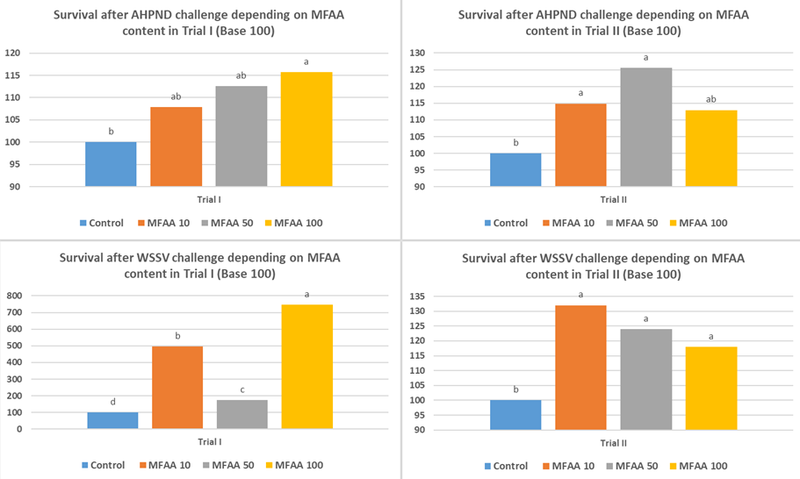
“In general, research studies mainly focus on single amino acids and their individual effect on feed performances. To our knowledge, there was no previously available scientific work in shrimp nutrition underlining the role of MFAA in an immune challenge,” researchers said.
The evaluated MFAA in the present study is composed of 17 amino acids in soluble form, with some of them already identified to generate positive actions on the immune response of aquatic species. The purpose of amino acid supplementation is mainly oriented for nutritional balance and these results are opening new possibilities for amino acid utilization in aquafeed formulations. “Bacteriological and viral challenges help to understand how natural free amino acids obtained from extensive poultry keratin hydrolysis improve survival of whiteleg shrimp,” said Pierrick Kersanté, R&D Aquaculture manager at BCF Life Sciences.
In addition to previous investigations, underlining their positive effect on shrimp zootechnical performances, MFAA obtained from extensive hydrolysis appears as new potential efficient solution to improve the immune response of white shrimp, L. vannamei, in case of bacteriological and viral challenges.
Download the study here.


